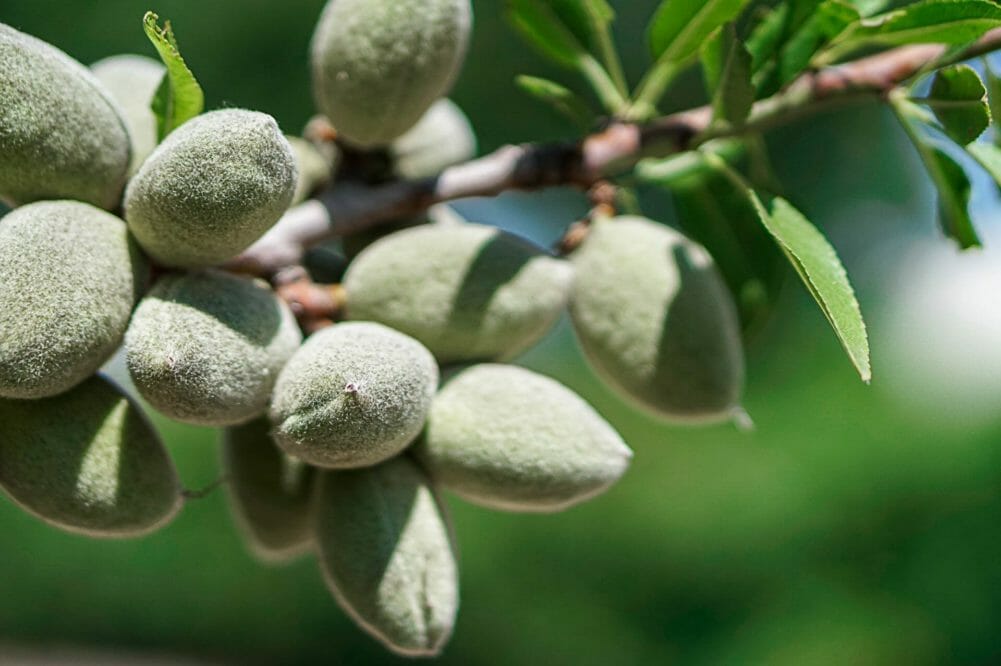When you think about putting a film around something in the food space, you most likely think about packaging or perhaps one of the growing number of shelf life enhancement startups that coat produce in a special material to stop them going bad. Last year, for example, Sufresca raised a $500,000 seed round for its edible fruit and vegetable coating to reduce food waste and curb plastic packaging while Apeel Sciences scored a $70 million Series C in 2018 for a shelf-life extending coating made from agricultural byproducts.
But further up the supply chain, Crop Enhancement is using a different type of coating to protect certain crops from pests in what it describes as a bio-based crop protection product.
“We are working at the intersection of materials science and biology using a novel type of material that hasn’t been used in agriculture until now that gives us the ability to protect a surface for a long time, six to eight weeks,” company CEO Kevin Chen told AFN.
A little more than three years after raising an $8.5m Series A, San Jose-based Crop Enhancement has raised an $8 million Series B. The round brings new partners to the table including Spruce Capital and Xeraya Capital, which led the round, Davinia Investments, and Alexandria Ventures. Existing investors 1955 Capital, Phoenix Venture Partners, and Wilbur Ellis’ Cavallo Ventures also re-upped their investments.
“What makes Crop Enhancement distinctive is the elegance of the solution and wide application across multiple crop types. They’re the first company that 1955 Capital has seen with true potential to solve the holy grail problem of protecting and boosting crop yield—by as high as 20-30% in some trials—while reducing the need for synthetic pesticides or pesticide applications,” Andrew Chung, founder and managing partner of 1955 Capital wrote to AFN via email. “Conventional chemical inputs are facing extreme regulatory pressure and it is only a matter of time before safer, softer approaches like Crop Enhancement’s become the norm.”
Crop Enhancement developed what it describes as a “sustainable bio-compatible chemistry” that can be sprayed on leaves and fruit as a broad-spectrum protection against pests. It’s a bit confusing at they use both the terms chemistry and bio-based in the description, and are working on getting organic approval, but all they could say about the solution is that it’s a plant extract derived from a widely grown commodity. Previously they’ve described it to AFN as sustainable chemistry.
Crop Enhancement received inspiration for a physical coating approach for crop protection from the tedious protectionary measures that specialty crop growers are already using.
“We started working on this back in 2015. We realized that physical protections such as net bags that are currently used in agriculture kind of work. Growers understand the use of physical types of crop protection, however, the barriers are cumbersome and laborious to set up and take down. There are gaps in the nets, too. It inspired us to see if we could create a sprayable coating to replace them.
Crop Enhancement’s first product, CropCoat, has performed just as well as leading chemical-based pesticides, according to Chen. It currently targets the specialty crop market but plans to explore high-value broadacre crops down the road. Some of its recent field trials have shown protection against coffee berry borer and coffee leaf miner insects as well as coffee leaf rust, while achieving similar milestones for cacao and almonds.
The new funding will be used to help the company launch a number of trials for its product in additional crops including grapes, apples, broccoli, onions, and tomatoes.
“The uniqueness gets investors’ attention,” Chen explained. “First, it’s a coating. We help growers control the plant surface including leaves, stems, and fruit which is where a lot of yield loss and damage occurs. As the world moves to safer chemistries, we feel that this is a safer chemistry that needs to be in the mix.”
And while the company gets a number of questions from investors, Chen feels they are questions common to any biopesticide company seeking funding around efficacy and modes of action.
“We have a good handle on our modes of action. Investors tell us they hear a lot of pitches but companies can’t really describe the mode of action for their product. Ours is a physical mode of action because it’s a physical coating.”
Crop Enhancement also plans to use the funding to explore relationships with agrochemical companies and regional distributors. It currently counts a dozen partners on board including four of the infamous big six agrochemical companies. The startup cannot share the identity of those companies at this time.
It’s also expanding its executive team starting with the addition of Jean Pougnier as Chief Business officer. Pougnier spent 35 years at DuPont which included leading business development for its crop protection portfolio.





